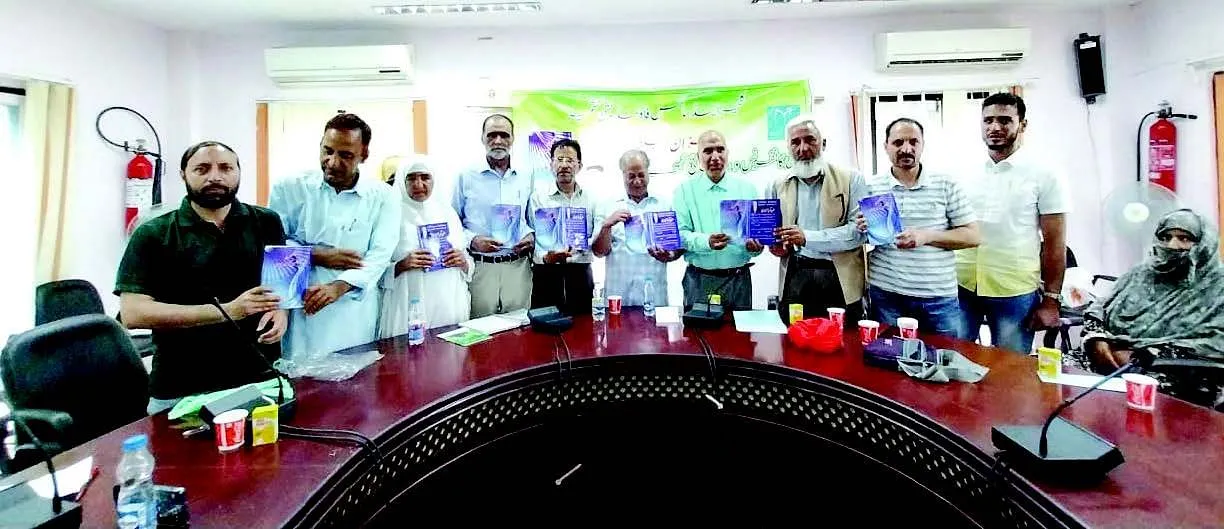Srinagar: Khurshid Ahmed Ganai, former IAS officer and former Advisor to the Governor, J&K, warned of warmer summers, mild winters and shifting weather conditions in Kashmir due to relentless environmental degradation in Kashmir, particularly during the last 50 to 60 years and impact of global warming.
Ganai was delivering lecture to the students of the Islamic University of Science and Technology (IUST) Awantipora on the threat of global warming and climate change. Ganai stated that most countries were lagging behind in fulfilling their targets under the nationally determined contributions ( NDCs) prepared by them under the UNFCCC’s COP agreements. He said that afforestation and restoration of the degraded forests was the most doable mitigation activity for reduction of green house gases in the atmosphere.”But unfortunately this was not being given requisite attention,” he said.
He said it was for the department of forests and environment in J&K to take quick action in this regard and exercise maximum caution and care while granting permissions for felling of forest trees and conversion of forest areas for non- forestry purposes. He said that the aim of REDD+ scheme was to restore the forest cover as forests were the best means of carbon storage and sequestration.
Ganai also highlighted the need for life style changes in Kashmir and shift to green processes, green housing, renewable energy and organic farming for reduction of green house gases. He said that shift to non-fossil fuels and renewable energy was part of the National Action Plan for Climate Change “but J&K was not among the front runners in the shift to renewable energy.”
Ganai felt that local non- governmental organisations and concerned government departments could work together to protect and restore springs, rivers, lakes, wetlands and other water bodies in Kashmir to reclaim the original natural beauty of Kashmir that made it ‘paradise on earth’ and first choice as tourist destination for millions of people from outside Kashmir. He said these water bodies act as important reservoirs for green house gases absorption.
“I don’t know about the exact status of implementation of J&K ‘s climate action plan, but perhaps targets had not been achieved,” he said. He referred to reports about fast melting glaciers in Kashmir and Ladakh mountain systems and called for close monitoring. Ganai also emphasised on adoption of proper municipal solid waste disposal practices in J&K and extension of such practices to rural areas through Panchayats “who were reportedly doing little in this regard resulting in dumps of solid waste dotting many rural areas.”
Referring to the latest world bank report about the possibility of excessive heat wave conditions likely to hit India in the near future, Ganai called upon both the local communities and the government to brace for this eventuality and other type of climate change disasters like droughts and floods.
Ganai called climate change mitigation and adaptation strategies as the biggest drivers of change in the world over the next few decades and which will have substantial political, social, economic, financial and technological consequences, “and these can become dangerous if the mitigation and adaptation efforts are not adequate and effective.”
In his vote of thanks, Prof Imran ul Amin of IUST thanked Ganai for his insightful lecture and repeated the well known truth that the present generation has not inherited planet earth from the previous generation but from future generations. He said that it is their duty to protect and preserve the planet for the future generations and to pass it on to them in good shape and condition.






